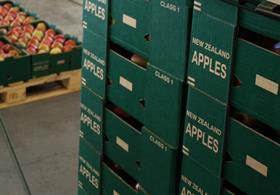
New Zealand is closing in on a free trade agreement (FTA) with the European Union, while a similar deal will be on the agenda with the UK once it finalises Brexit arrangements.
The move towards a trade pact with the EU comes after New Zealand Prime Minister, Jacinda Ardern, travelled to Europe last week.
After meeting with Ardern over the weekend, European Commission President, Jean-Claude Juncker,expressed his desire to finalise a deal by the end of 2019.
'We should do everything possible to conclude the trade agreement between New Zealand the EU in the course of this year,' Juncker said following his meeting withArdern.
'I'm convinced, given the good spirit that did impact our discussions today, that this is possible. New Zealand is far on the map, but close to our hearts.'
According to media reports, Ardernwants to see the right deal done for New Zealand exporters.
'The degree with which he [Juncker] was putting emphasis on that really stood out to me and surprised me,” Ardernsaid, according to Newstalk ZB. “He shared that ambition publicly. He wants to see the deal done.
'There are benefits to us concluding and moving quickly, but at the same time we need to make sure it is a quality deal.”
Current tariffs on New Zealand products to the EU include an 8.8 per cent duty on kiwifruit and 12.8 per cent on tomatoes. The windfall from an FTA is forecast to boost New Zealand’s GDP by NZ$2bn per year.
Ardern also signalled her intentions to launch negotiations on an FTA with the UK, once Westminster is in a position to do so.
“The FTA will be a high quality, comprehensive and progressive agreement that delivers for all of our citizens, contributes to addressing global and regional issues of concern, such as environmental issues and labour standards, and supports sustainable and inclusive economic development,” Ardern said in a statement.
Ardern spoke to British Prime Minister, Theresa May, about New Zealand’s interests that will be affected by Brexit.
The two countries signed off on a Veterinary Agreement and Mutual Recognition Agreement on Conformity Assessment Bodies, which Ardern said will assist in ensuring trade continues to flow freely once the UK has left the EU.
“These agreements mean current trade-facilitating arrangements covering the export of products into the EU are maintained with the UK,” Ardern added.
“They help to ensure New Zealand exporters will not be worse off in the immediate aftermath of Brexit and there will be a continuity of the existing rules. This is a very important arrangement for our exporters.”



